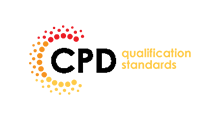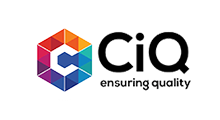 Proofreaders will check documents for simple and complex errors. Spelling mistakes and grammar errors cannot be in an article when it goes out for publication. Errors can impact the integrity of a publication. Proofreaders are the members of the publishing team that make sure that documents look and read their best before they are sent to print.
Proofreaders will check documents for simple and complex errors. Spelling mistakes and grammar errors cannot be in an article when it goes out for publication. Errors can impact the integrity of a publication. Proofreaders are the members of the publishing team that make sure that documents look and read their best before they are sent to print.
Along with being able to recognize errors in written materials, proofreaders must be able to correctly mark the documents for corrections. Some proofreading firms will have their proofreaders correct the documents while the writer reads the work out loud. Sometimes proofreaders will need to correct the same document numerous times. The job is not complete until the document is error-free.
Other aspects of proofreading involve measuring the spacing and margins to ensure they meet the criteria of the publication before the work is sent through to printing. Proofreaders that work for newspapers and magazines may also be responsible for the positioning of headlines, articles, and photos.
Proofreaders must be able to work closely with writers and other proofreaders to ensure every word and paragraph is formatted correctly and free of errors before it is sent to the next step of publication.
What is the workplace of a Proofreader like?
Proofreaders work behind the scenes for publications. They are a part of a team within the workplace with other proofreaders, writers, copy editors, and an editor in chief. Most proofreaders work under a supervisor or manager in the office.
Proofreaders can work from home if they choose to work for themselves, editing academic and scholarly work, or privately funded projects. Some proofreaders that work privately may choose to only edit and proofread documents for organizations, such as grant applications for non-profit organizations.
There are a variety of places that proofreaders can work from. Some proofreaders work from the comfort of their favourite coffee shop, while others work for a bustling national newspaper or magazine office, proofreading hundreds of articles per week.
The proofreader’s personal qualities
Good computer skills: It is important for a proofreader to have effective computer skills. In the era of technological advancement, most of the proofreading is done on-screen, hence it is essential for a proofreader to have the better understanding of varied computer applications and tools related to proofreading and editing such as Track Changes in MS Word, insert comments, etc. Moreover, there are different types of online proofreading tools such as SlickWrite, Grammarly, Ginger, Proof Read My File and so on, are available that helps you to review your text for mistakes and error and corrects them. For using these tools, it is important to have detailed knowledge of computer programs as well as The internet.
Have patience: Proofreading is considered as a tedious task, as it requires a detailed analysis of the text in order to identify grammar and spelling mistakes, word choice errors, sentence structure, punctuations errors and correct them. For an in-depth analysis of the content, one needs to have patience. So before hiring a proofreader to review your document, you must ensure that he/she has the patience to review lengthy text with a critical eye. As well, proofreader should be able to comprehend what a writer wants to say, despite ambiguous writing. Only then, he/she can identify the mistakes in writing. Many professional suggests double reading, reading aloud and backward reading of the text to find minor mistakes. Therefore, proofreader should have enough patience level and skills to do a detailed review of manuscript assigned to him/her.
Love Reading: Proofreader should be a good reader. He/she should enjoy reading different forms of writing such as books, journals, essays, newspapers, magazines, web content, articles and blogs, and even business letters. Reading skills is one of the essential qualities that a proofreader should have. This characteristic will aid in finding the errors in grammar, spelling and sentence structure, etc. easily and competently without any hassle.
Good English and grammatical knowledge: For finding the grammatical and spelling mistakes, wrong use of verbs and tenses, word choice, typos, etc. in the text, it is imperative for the proofreader to have good command over the English language. In addition to this, proofreader should also be aware of various grammar concepts and rules so that he/she can correct the grammatical errors and typos effectively. He/she must be competent in rectifying mistakes including wrong word usage, word order, punctuation and other grammar related errors. The better understanding of English and grammar is essential for proofreader in order to make the write-up clear, well-structured, as well as grammatically correct.
Aware of varied stylebooks: There are different types of style guides such as AP style guide, AMA Manual of Style, Chicago Manual Style, APA and MLA Style guide and so on. The proofreader should be familiar with most popular style guides in order to review every detail of content carefully including the style of writing and Style Guide Compliance. Understanding of various Style Guides also aids in identifying the citations or Referencing errors so as to make the content correct and accurate in all aspects.
Have formal training: An individual need to have some kind of formal training which can include high school courses in Literature and English, which will give a foundation in basic proofreading and language. In addition to this, certain diploma courses such as Marketing, Human resources, finance or any other subjects are also essential. It is crucial for a proofreader to possess knowledge of varied subjects in order to analyze effectively the content.
 Good observational skills and Consistent: Even a small mistake such as the wrong use of exclamation marks, can make a big difference. Wrong use of commas, full stops, and semi-colon can change the meaning the sentence completely. If a word is omitted, or double space is left between sentences, a proofreader should be able to catch it. An individual needs to be detail-oriented as well so that he/she can scan the minor mistakes in the text. Therefore, it is important for a proofreader to be well observant and good with details in order to review effectively the write-up as well as to make it precise. Furthermore, he/she must be prompt with regards to complete the proofreading within the specified deadline.
Good observational skills and Consistent: Even a small mistake such as the wrong use of exclamation marks, can make a big difference. Wrong use of commas, full stops, and semi-colon can change the meaning the sentence completely. If a word is omitted, or double space is left between sentences, a proofreader should be able to catch it. An individual needs to be detail-oriented as well so that he/she can scan the minor mistakes in the text. Therefore, it is important for a proofreader to be well observant and good with details in order to review effectively the write-up as well as to make it precise. Furthermore, he/she must be prompt with regards to complete the proofreading within the specified deadline.
Effective communication skills: Good communication skills are essential for the proofreader. If there is doubt about any sentence or content, a proofreader should be able to communicate freely the query and clear it to the client. Any miscommunication on the part of proofreader can affect the writing to a great extent.
Enough time to check: Proofreading is a challenging task, it requires adequate time to print the text, analyze the content, markup the errors, and correct them. The proofreader should have adequate time to perform all these tasks. Reviewing the text-only online is not enough to make the text accurate and error-free. Multiple times of reading and checking is of paramount importance for effective writing.
Feel free to use a dictionary or any other kind of help: The good proofreader is one who is not afraid of using a dictionary, grammar reference book or style guide to review the content. Furthermore, he/she should not feel humiliation in consulting or taking help of others.





-
Add a note